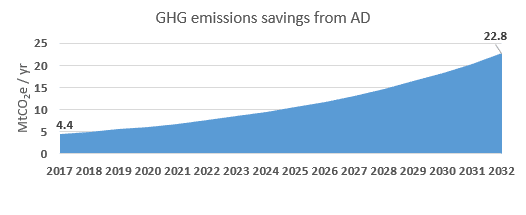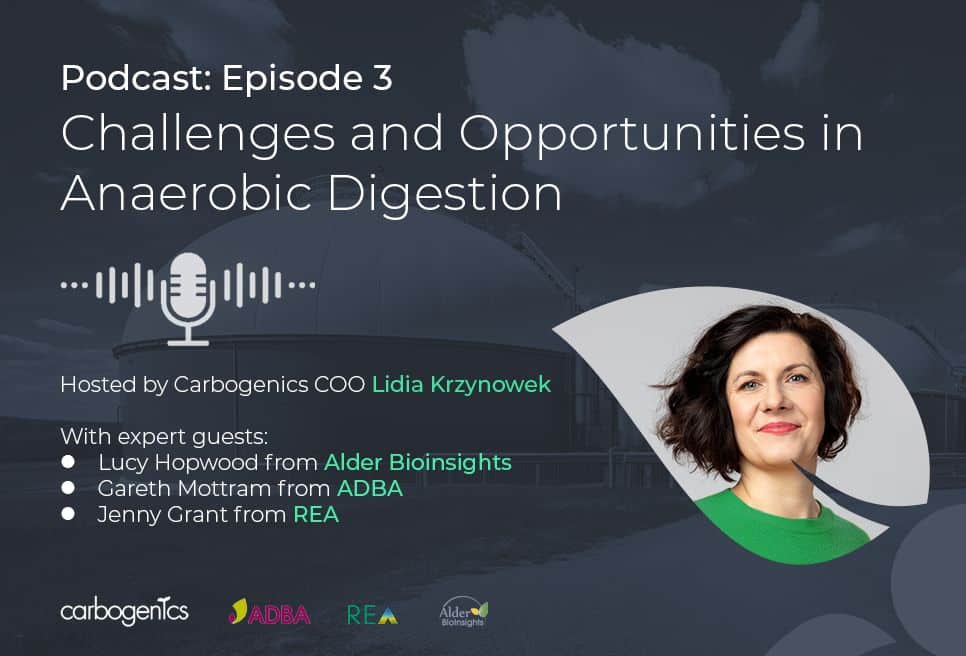Authors: Dr Gareth Mottram and Jon Hughes The global market for biofuels is set for…
Defra farming consultation: AD offers the only means of decarbonising manure management
ADBA has today submitted its response to the Defra consultation, Health and Harmony: The Future for Food, Farming and the Environment in a Green Brexit. You can download our submission here.
In our response we make the case that with just 2.3 million tonnes of farm waste currently going to AD out of a potential 90 million tonnes, the technology has far greater ambitions that will support agricultural climate change mitigation.
AD offers the only means of tackling emissions from manure management, which constitutes 1% of total UK greenhouse gas emissions.
The importance of this cannot be underestimated – agricultral is a difficult-to-decarbonise sector and some sources of emissions seem inexorable e.g. methane from enteric fermentation.
AD supports farmers and delivers 'public goods'
As we detailed in previous blogs, changes are coming to the way in which agriculture in the UK is funded. Following Brexit, Defra are looking to introduce a new Environmental Land Management system in place of the CAP Pillar 1 payments. The new agricultural policy will be underpinned by “payment of public money for the provision of public goods”. Here, environmental enhancement and protection will be of key importance.
Accordingly, our submission highlights that in addition to its renewable energy generation, AD provides the public goods of:
- Soil health improvement (by increasing organic matter, improving soil structure, reducing water demand, reducing soil degradation and run-off);
- Supporting productivity and competitiveness drivers (by improving food security through profitable crop rotation and the recycling of essential crop requirements of Nitrogen, Phosphorous, Potassium and trace elements through the spreading of digestate); and,
- Climate change mitigation (through reducing emissions from rotting manure, farm wastes and slurries, and replacing petrochemical derived artificial fertilisers, abating significant amounts of carbon).
As the below chart demonstrates, AD industry could potentially deliver emissions savings of 22.8MtCO2e for the Climate Change Act’s fifth carbon budget.

Related to emissions is the issue of air quality. In our response, we set out how it should be a priority of any new environmental land management scheme to support the agricultural sector in efforts to improve air quality and reduce ammonia emissions.
Studies undertaken by ADBA members show how digestate can retain ammonia. Results show that digestate with a dry matter of 2.8% and of that volatile solids where 57.1% that was in an uncovered lagoon, compared with digestate of 3.23% dry matter of which volatile solids where 59.5% in a covered lagoon. Results of emissions to atmosphere for ammonia between 4.4 to 7.1 mg/min and 11.6 to 64.0 mg/min of methane from the covered lagoon. Whereas the uncovered lagoon was showing emission rates for ammonia between 313 to 477 mg/min, and methane 484 to 937 g/min.
As our submission notes, there are many technologies that could be supported further through new agricultural policy for their efforts to reduce ammonia. For example:
- Paque provide a product called ANAMMOX, which offers a cost-effective and sustainable way of removing ammonium from effluents and ammonia from waste gas, which offers a sustainable way of removing ammonium from effluents and ammonia from waste gas
- CCm offers technology that can stabilise ammonia and nitrogen levels in digestate, reducing emissions and providing a more useful product for farmers and potentially an additional source of income if it is sold to nearby farms.
Next steps
The policy team will keep ADBA members informed of any developments. In addition to a response to the consultation exercise from Defra, government will put forward an Agriculture Bill later in the year that will implement many of the necessary changes the comand paper discussed.
If you have any questions about farming policy and the impact it has on AD you can find out the latest news at the UK AD and World Biogas Expo, click the below for more details and the free registration.


